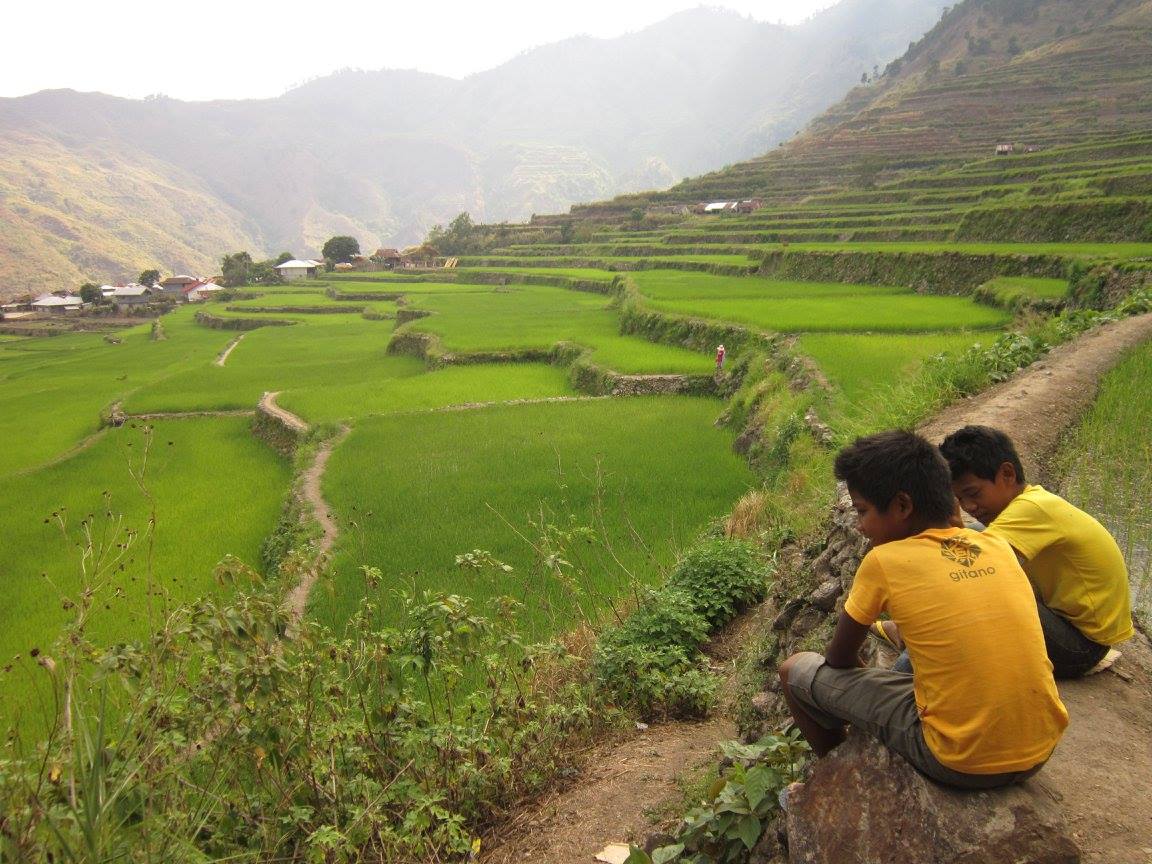Dr. Susan Aquino-Ong on Heritage Trees and the 21st Century Landscape. From the ICOMOS Philippines Heritage Talk Series #icomosph #heritagetalk
ICOMOS Talks: Managing Mountain Grassland Landscapes: The Case of Mts. Iglit-Baco National Park by Boj Capati
Mr. Bojer Capati talks about cultural landscapes, specifically an indigenous cultural landscape in Mindoro island, the Mts. Iglit-Baco National Park. The lecture touches on the Mangyan-Tamaraw shared space, and the challenges to safeguard a unique mountain grassland landscape.
IDMS 2015: ICOMOS Philippines Heritage Talk Series
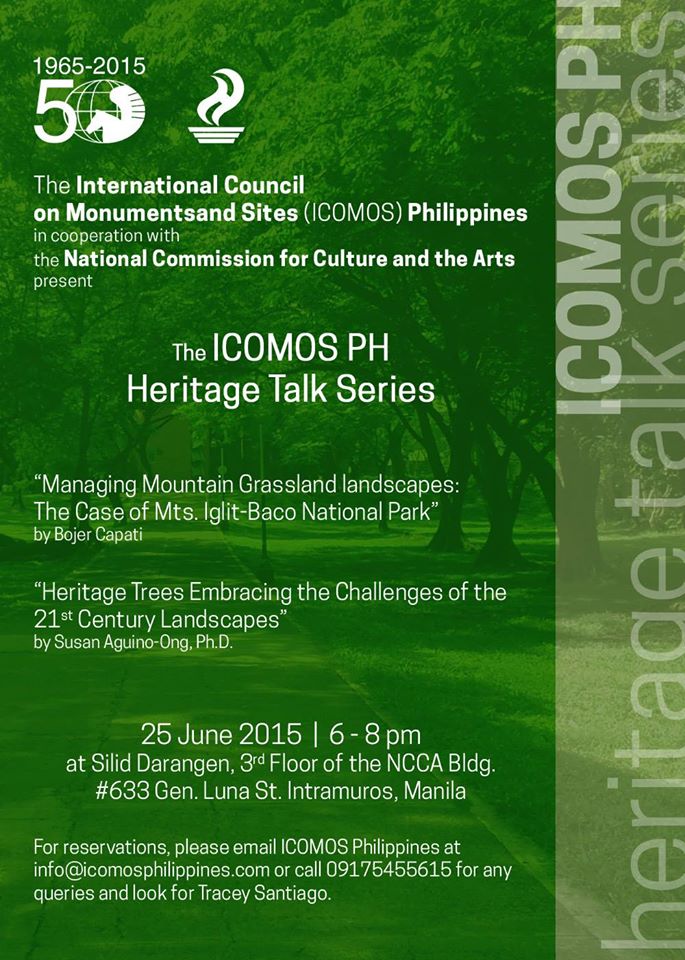
ICOMOS Philippines is inviting everyone to attend the ICOMOS PH Heritage Talks on Cultural Landscapes!
This heritage talk series will be on June 25 (Thursday) at the National Commission for Culture and the Arts from 6-8PM. This is open to the public and FREE of charge.
Kindly send us a message if you are interested to join us and we will reserve you a seat. Thank you and we hope to see you all!
#icomosph #ncca #culturallandscapes #heritagetrees #idms
ICOMOS Philippines and PALA host Cultural Landscapes Forum
The Rice Terraces of the Philippine Cordilleras are simply beautiful, a living cultural landscape and inscribed in the UNESCO World Heritage List. What does it mean to be referred to as a cultural landscape? Are there Philippine laws that can protect and conserve them? How do we become stewards of an entire mountain ecosystem and even just a single tree?
ICOMOS Philippines and the Philippine Association of Landscape Architects (PALA) will be hosting a Cultural Landscapes Forum on February 26, 2011, 12 to 6 p.m. at the UP College of Architecture. ICOMOS members Archt. Joy Mananghaya, Atty. Kay Malilong-Isberto and Archt. Susan Aquino-Ong will share and give a talk about cultural landscapes, the legal aspects of conservation, and the protection and conservation of Philippine heritage trees.
This is the first of PALA’s CPE-2011 series of lectures. For more information, e-mail Susan Aquino-Ong at sca.susan@gmail.com.
ICOMOS Philippines celebrates the heritage of Agriculture
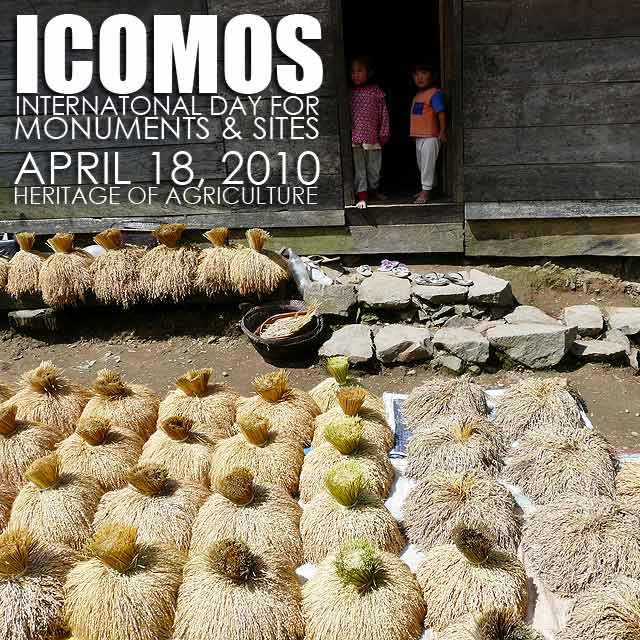
On the proposal of ICOMOS, 18 April was endorsed as the International Day for Monuments and Sites by UNESCO in 1983. This special day offers an opportunity to raise public awareness concerning the diversity of the world’s heritage and the efforts that are required to protect and conserve it, as well as to draw attention to its vulnerability. For several years now, ICOMOS suggests a topic to be highlighted on this occasion. This has allowed our members and our committees to hold activities, conferences, colloquia or other events to raise awareness on this cultural heritage among the public, the owners or the public authorities by linking a global theme to local or national realities.
This year’s theme is: The Heritage of Agriculture. Ivan Anthony Henares, ICOMOS Philippines member and expert member of the International Cultural Tourism Committee (ICTC), introduces the agricultural heritage of the Philippines in International Day for Monuments and Sites 2010 celebrates the heritage of agriculture.
Accroding to ICOMOS, “In the last two decades, the international NGO’s and public administrations in charge of heritage protection have begun to define and characterize the heritage of agriculture as well as to establish the criteria and tools that should guide the assessment of its values, protection and management. Accordingly, ICOMOS, UNESCO and other international organizations have included these objectives in their ongoing research and projects. It is therefore pertinent to evaluate how heritage properties linked to agricultural and livestock rearing practices are taken into account in current heritage practice by examining significant international experiences in this field, such as the listing of such properties in UNESCO’S World Heritage List and in the Representative List of the Intangible Cultural Heritage of Humanity, as well as the Globally Important Ingenious Agricultural Heritage Systems Programme (GIAHS), led by the UN Food and Agriculture Organisation (FAO) with other partners such as UNDP (United Nations Development Programme), UNESCO and its World Heritage Centre, ICCROM (International Centre for the Study of the Preservation and Restoration of Cultural Property), IUCN (The World Conservation Union) and CGIAR (the Consultative Group on International Agricultural Research).”
Twinning program between Ifugao Rice Terraces and Cinque Terre bared
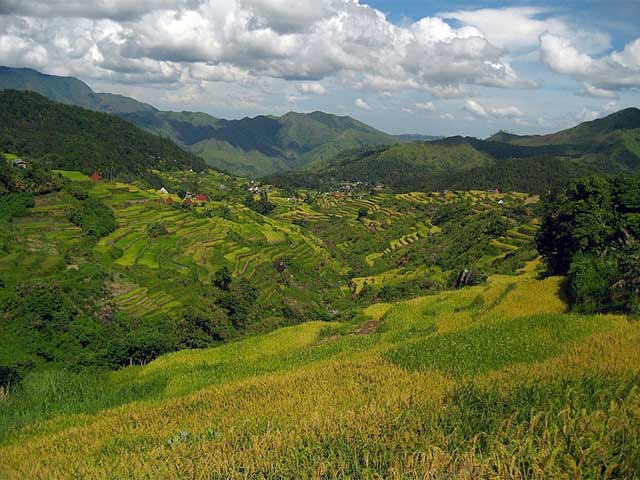
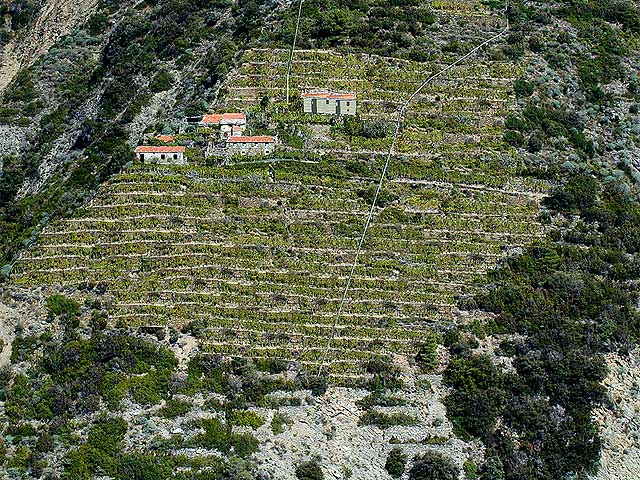
A twinning program between the Ifugao Rice Terraces and Cinque Terre, both UNESCO World Heritage Sites, has been initiated beginning with a study tour of Cinque Terre this coming May 11 to 20, 2009. UNACOM Secretary General Ambassador Preciosa Soliven, Governor Teodoro Baguilat, Jr. of Ifugao, Mayor Pablo M. Cuyahon of Hungduan, Ifugao and Archt. Joy Mananghaya of ICOMOS Philippines will join this study tour. The objective of the visit is to learn from the management and conservation approaches of this Italian cultural landscape, with the aim of applying some of their best practices to our own Ifugao Rice Terraces. Cinque Terre is a living cultural terraced landscape with vineyards and olives. It faces the same conservation and management challenges that our the rice terraces are facing.
Post Conference Report: 2007 CIAV Conference – “Preserving Traditional Landscapes”
The ICOMOS Philippines successfully hosted the 2007 meeting of the ICOMOS International Committee on Vernacular Architecture (CIAV), held last 2-8 December 2007 at the Rice Terraces of the Philippine Cordilleras, a UNESCO World Heritage site. International heritage experts, members of ICOMOS (International Council on Monuments and Sites) participated in the event.
ICOMOS is the official international organization of heritage conservation professionals involved in heritage conservation and who are recognized as international leaders in the field. It regulates the worldwide conservation profession and is the only NGO accredited to advise the UNESCO World Heritage Committee on cultural heritage matters. Its headquarters is in Paris and its Philippine members are prominently involved in conservation projects for the government or private sectors and are also members of the academe.
The conference was unveiled with a welcome dinner organized at the National Museum. Sumptuous dishes were shared as the hosts presented their welcome remarks to the numerous distinguished guests and delegates of the conference. Respected heritage specialists from Canada, Italy, Finland, Germany, United States, Mexico, Dominican Republic, Japan and Korea joined their Philippine counterparts in the welcome event.
Continue reading “Post Conference Report: 2007 CIAV Conference – “Preserving Traditional Landscapes””Protecting endangered traditional landscapes
International heritage luminaries are meeting in the Philippines for the first time from 2-8 December 2007. They are members of ICOMOS (International Council of Monuments and Sites), the official international organization of architects, landscape architects, urban planners, archaeologists, anthropologists, historians, tourism professionals, lawyers, and other professionals involved in the heritage conservation profession who are recognized as international leaders in the field.
Headquartered in Paris, ICOMOS is the international organization that regulates the worldwide conservation profession and is the only NGO accredited to advise the UNESCO World Heritage Committee on cultural heritage matters. Its Philippine members are prominently involved in conservation projects for the government or private sectors and are also members of the academe.
On 2-8 December the ICOMOS National Committee Philippines hosts the 2007 meeting of the ICOMOS International Committee on Vernacular Architecture (CIAV), to be held at the Rice Terraces of the Philippine Cordilleras, a UNESCO World Heritage site. Respected heritage specialists from Italy, Finland, France, Germany, Macedonia, United States, Mexico, Dominican Republic, Japan and Korea are joining their Philippine counterparts to meet on “Protecting Endangered Traditional Landscapes”, focusing on the current status of the 5 terrace clusters located in Ifugao province inscribed in the World Heritage in Danger List. The “In Danger” designation simply means that conservation measures for a site on the World Heritage List must be stepped up to prevent its rapid deterioration.
The experts will discuss conservation and the socio-economic issues that can support heritage conservation in countries like the Philippines. On the meeting agenda are:
a) The Rice Terraces of the Philippine Cordilleras, a UNESCO-inscribed World Heritage Site, is endangered today because of physical deterioration but more importantly, the resident population who has always maintained the site is having difficulty bridging the task of preserving their heritage with 21st century lifestyle. Case studies will be presented showing steps taken by other international sites with similar issues.
(b) In countries like the Philippines preserving heritage is really a lost cause unless preservation becomes more relevant to its host communities through tying preservation in with development and income generation. Therefore methods have to be found to use heritage as a resource for income generation i.e through community tourism programs, craft development, or harnessing natural resources for sustainable development such as mini-hydroelectric plants, etc.
At this moment, physical repair of the terraces is necessary. However restoring the terraces and their walls must come together with establishment of cultural and economic opportunities that make terrace life more viable for the 21st century. Among the positive measures suggested by UNESCO, is the establishment of additional income-generating opportunities such as community-based cultural and eco tourism programs.
Therefore the meeting’s sub-theme is identifying methods to use the underutilized rice terraces heritage as a resource to increase present income levels. One program is the establishment of community-based tourism.
Conserving heritage has little relevance to most site residents who live from day to day in survival mode. Therefore ICOMOS aims to make them aware that among the values of heritage is its use (not exploitation) as a sustainable cultural and eco tourism resource. Therefore heritage must be preserved as a livelihood opportunity and also to provide community identity.
Successful community-based heritage projects in the Philippines will be presented such as the Freedom Trail that unites seaside towns in south Cebu province in a trail of conserved heritage and community-led tourism sponsored by the Ramon Aboitiz Foundation, the heritage tourism project by the Bohol community, Taal heritage program, and the Save Ifugao Terraces Movement (SITMO) community development programs in Ifugao province. These success stories prove that the Filipino, contrary to popular opinion, has actually done well in conserving his heritage. The Philippine presentations will show that good community-oriented conservation work is being done in the country, proving that our heritage is not going down the drain like everyone else thinks.
Training of Philippine conservation practitioners is another objective of the meeting. Since conservation courses are not offered in Philippine universities, the presence of foreign colleagues is a rare opportunity for ICOMOS Philippine Committee members and other heritage professionals to widen their personal international networks and to upgrade professional. Most of the Philippine participants will be from the youth sector.
Institutions supporting the ICOMOS endeavor are the US Ambassadors’ Fund for Cultural Preservation, e8/TEPCO (Tokyo Electric Power Company), Fundación Santiago, Ayala Foundation, Ramón Aboitiz Foundation, Department of Tourism, and the National Commission for Culture and the Arts (NCCA).
